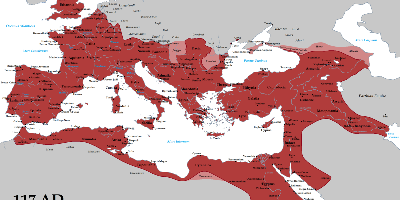Dictatorship of Quintus Fabius Maximus Verrucosus (1 janv. 221 av. J.-C. – 31 déc. 221 av. J.-C.)
Description:
When the Consul Gaius Flaminius was killed during the disastrous Roman defeat at the Battle of Lake Trasimene in 217 BC, panic swept Rome. With Consular armies destroyed in two major battles, and Hannibal approaching Rome's gates, the Romans feared the imminent destruction of their city. The Roman Senate decided to appoint a dictator, and chose Fabius for the role - possibly for the second time, though evidence of a previous term seems to be conflicting - in part due to his advanced age and experience. However, he was not allowed to appoint his own magister equitum; instead, the Romans chose a political enemy, Marcus Minucius. Then Fabius quickly sought to calm the Roman people by asserting himself as a strong Dictator at the moment of what was perceived to be the worst crisis in Roman history. He asked the Senate to allow him to ride on horseback, which Dictators were never allowed to do. He then caused himself to be accompanied by the full complement of twenty-four lictors, and ordered the surviving Consul, Gnaeus Servilius Geminus, to dismiss his lictors (in essence, surrendering his office), and to present himself before Fabius as a private citizen.Plutarch tells us that Fabius believed that the disaster at Lake Trasimene was due, in part, to the fact that the gods had become neglected. Before that battle, a series of omens had been witnessed, including a series of lightning bolts, which Fabius had believed were warnings from the gods. He had warned Flaminius of this, but Flaminius had ignored the warnings. And so Fabius, as Dictator, next sought to please the gods. He ordered a massive sacrifice of the whole product of the next harvest season throughout Italy, in particular that of cows, goats, swine, and sheep. In addition, he ordered that musical festivities be celebrated, and then told his fellow citizens to each spend a precise sum of 333 sestertii and 333 denarii. Plutarch isn't sure exactly how Fabius came up with this number, although he believes it was to honor the perfection of the number three, as it is the first of the odd numbers, and one of the first of the prime numbers. It is not known if Fabius truly believed that these actions had won the gods over to the Roman side, although the actions probably did (as intended) convince the average Roman that the gods had finally been won over.
Ajouté au bande de temps:
Date:
1 janv. 221 av. J.-C.
31 déc. 221 av. J.-C.
~ 12 months
